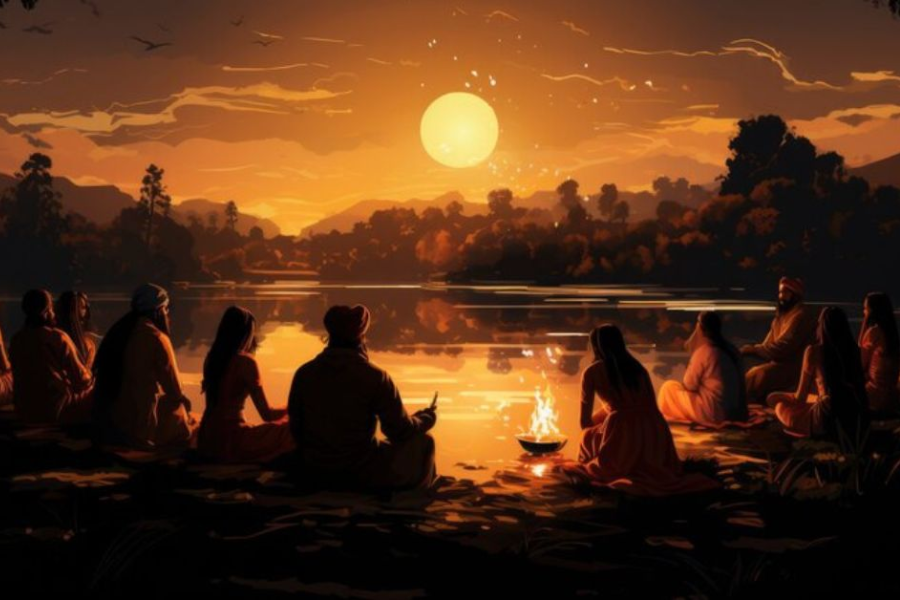Exploring The Human Gathering Cult: Origins, Beliefs, and Practices
The Human Gathering Cult has long fascinated and puzzled people around the world. With its unique rituals and enigmatic principles, this society sparks both intrigue and controversy. The allure of its mysterious origins and the impact on its followers drive curiosity around this compelling social phenomenon.
To fully grasp the essence of The Human Gathering Cult, it’s essential to examine its core beliefs, key rituals, and societal influence. By exploring its roots and evolving practices, we can demystify the elements that make this group both captivating and controversial. This guide offers a comprehensive look inside the society’s inner workings.
Ready to delve into the world of The Human Gathering Cult? Let’s uncover the secrets, controversies, and influence of this captivating group.
What is The Human Gathering Cult?
Definition and Overview
The Human Gathering Cult is a private organization recognized for its distinctive practices and emphasis on community unity. The group values shared human experience, aspiring to create harmony through its collective rituals and teachings. Members refer to themselves as “seekers” on a journey for truth and enlightenment, bonded by their desire for deeper connection and understanding.
Historical Background
Early Origins
The origins of The Human Gathering Cult date back to the early 1900s when intellectual and spiritual leaders aimed to establish a community centered on shared human experiences. They felt that modern society was drifting from essential human values and sought to restore these ideals through communal rituals and learning.
Evolution Through Time
Over the years, The Human Gathering Cult has adapted, evolving in response to societal changes while preserving its core values. Initially a small, local group, it has grown into a worldwide movement with followers from diverse backgrounds, enhancing its relevance and attracting new members.
Core Beliefs and Practices
Foundational Beliefs
The Human Gathering Cult’s beliefs center around the idea of collective consciousness. Members are encouraged to seek enlightenment through communal experiences and the sharing of wisdom, emphasizing empathy, understanding, and mutual support.
Core Principles
Key principles of the society include the pursuit of knowledge, the significance of community, and the rejection of materialistic values. Members are taught to seek enlightenment through introspection and community activities, fostering a sense of purpose and unity.
Rituals and Ceremonies
Rituals hold a central place within the society, serving to reinforce shared values and build a sense of community. These include symbolic acts such as communal meals, group meditation, and ritual dances, all designed to create a sense of belonging.
Symbolic Practices
Symbolic acts, like candle lighting during ceremonies, represent deeper spiritual ideas, symbolizing the illumination of the mind and spirit. These practices are foundational to the society’s ceremonies, offering members a way to express their shared beliefs tangibly.
Influence and Impact
Societal Impact
In communities where The Human Gathering Cult is active, it has promoted close-knit bonds that emphasize support and cooperation. These communities often contrast the individualism of modern society, serving as models of mutual respect and unity.
Cultural Influence
The society’s unique rituals and philosophy have inspired art, literature, and music, contributing to a larger cultural discussion on spirituality and community. This cultural influence extends beyond its members to those interested in its practices and teachings.
Political Influence
Politically, The Human Gathering Cult’s focus on fairness and equality has led to involvement in social causes, advocating for change and justice. This activism has promoted awareness of social issues and encouraged positive societal change.
Modern-Day Presence
Present-Day Activities
Today, The Human Gathering Cult remains active, engaging in activities that promote its principles and ideals. Members participate in community service, educational programs, and public events to share their message and invite new followers. This adaptability has helped the society maintain a strong presence in a dynamic world.
Key Figures
Several influential figures within the society have played crucial roles in shaping its growth and expanding its influence. Known for their charisma and dedication, these leaders have been instrumental in sustaining the society’s relevance and direction.
Controversies and Criticisms
Notable Controversies
The Human Gathering Cult, like many private organizations, has encountered its share of controversies. Critics have raised concerns about the group’s secrecy, with allegations of manipulation and control drawing public scrutiny.
Public Perception
Public opinion on The Human Gathering Cult varies, with some viewing it as a positive force for community building, while others see it as a potentially concerning organization. Media portrayals often highlight the controversies, adding to the public’s divided view.
Expert Critiques
Sociologists and psychologists have offered critiques of The Human Gathering Cult, noting that its emphasis on collective consciousness can suppress individual identity. Other experts point out the psychological risks posed by the strong communal pressure on members.
Comparisons with Other Movements
Similarities with Other Groups
The Human Gathering Cult shares similarities with other communal movements in its emphasis on unity and shared spiritual practices. It attracts those looking for belonging and meaning, though its specific beliefs and rituals make it distinct.
Unique Qualities
Despite these parallels, the society’s emphasis on collective consciousness and materialism rejection define its identity. Its flexibility and evolution over time also differentiate it from other, more rigid movements.
Summary:
The Human Gathering Cult, a private and intriguing organization, focuses on cultivating collective consciousness and unity through shared rituals and beliefs. Founded in the early 20th century by intellectual and spiritual leaders, the society was created as a response to modern society’s perceived loss of core human values. It emphasizes empathy, understanding, and a rejection of materialism. Known for its unique practices like communal meditation, symbolic ceremonies, and a commitment to social advocacy, the society has inspired art, literature, and music while also stirring controversy. Critics question its secrecy and potential impact on individual autonomy, yet its adaptable and inclusive approach continues to draw members and curiosity worldwide.
FAQs:
What is The Human Gathering Cult?
The Human Gathering Cult is an organization that values collective human experiences and emphasizes community bonds. It aims to foster a harmonious society through shared rituals and beliefs.
When was The Human Gathering Cult founded?
The society originated in the early 20th century, founded by intellectuals and spiritual leaders who wanted to restore fundamental human values.
What are the core beliefs of The Human Gathering Cult?
Core beliefs include the pursuit of enlightenment through collective experiences, the importance of community, and a rejection of materialism in favor of spiritual and communal values.
What kind of rituals does society practice?
Members participate in rituals such as communal meals, meditation, and symbolic acts like candle lighting, which are meant to strengthen bonds and represent spiritual ideas.
How has The Human Gathering Cult impacted society?
The society promotes close-knit communities that value empathy and cooperation. It has also inspired various cultural works and has been involved in social justice causes.
Is The Human Gathering Cult considered controversial?
Yes, it has faced controversies, particularly for its secretive nature and alleged control over members. Critics have expressed concerns about its impact on personal autonomy.
Who are some notable figures in society?
The society has had charismatic leaders who have played key roles in its expansion and influence, though many of them remain private and are known mainly within the society.
How does society compare to other movements?
While it shares some similarities with other communal and spiritual movements, its unique focus on collective consciousness and flexibility in adapting to modern times set it apart.
What is the public perception of The Human Gathering Cult?
Public perception is mixed. Some people view it as a positive force for community and connection, while others remain skeptical of its secrecy and influence.
Is it possible to join The Human Gathering Cult?
Membership is selective and often requires a deep commitment to the society’s values and principles. Joining usually involves a series of steps, including attending meetings and participating in rituals.
Stay in touch to get more news & updates on Dubaitribune!






